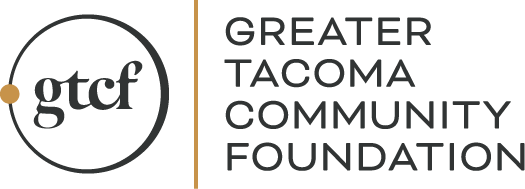
Community
4
COVID-19 Conditions Strain School Districts and Nonprofit Partners as More Youth and Families Experience Homelessness
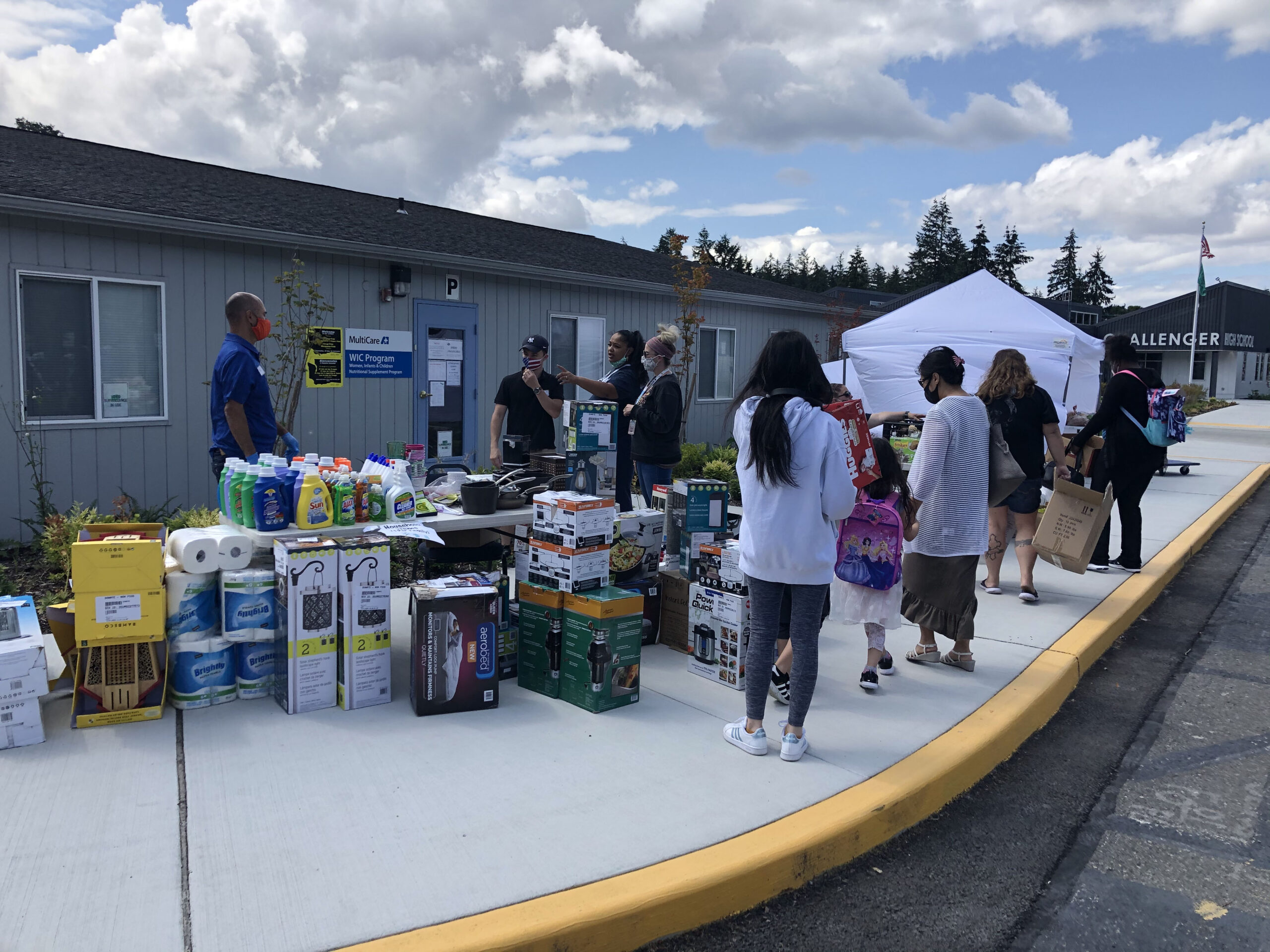
Under the persistent conditions of COVID-19, families have relied on the support of school districts and nonprofit community partners to make ends meet.
Marilee Hill-Anderson, Directory of Community Engagement of the Sumner-Bonney Lake School District paints a picture of the staggering need families in the district are facing right now, “We had a family who was illegally evicted from a local motel that had been there for a year and a half as homeless. They were unable to pay their hotel expenses and were locked out of their room. What’s frustrating is we’ve seen this monster coming for a very long time and it’s almost as if COVID has created more needs, while pouring kerosene on existing needs, and striking a match.”
“The structures provided by school districts was a huge loss to families…”
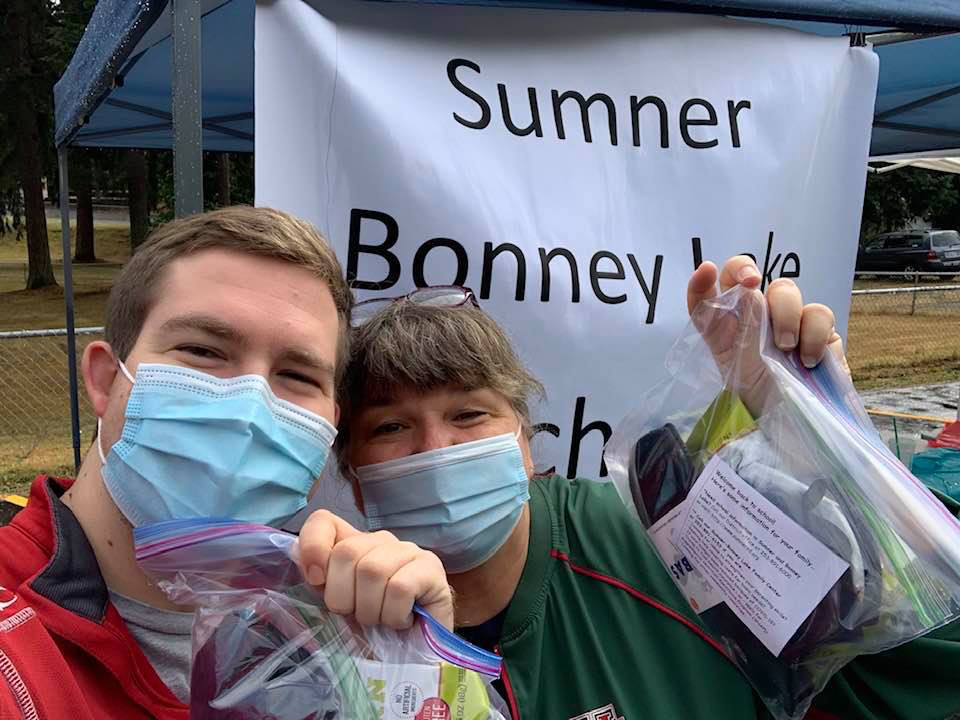
Marilee and her son prepare kits for youth and families during a Sumner-Bonney Lake School District event.
School districts across Pierce County rely on community partner support to meet the needs of homeless students, as required by the McKinney-Vento Homeless Education Assistance Act. This Act says school districts are required to assist students who are experiencing homelessness. This includes students and families who may have a place to stay, but the housing isn’t adequate nor long-term.
According to a University of Chicago study, “one in 10 young adults between the ages of 18 and 25, and at least one in 30 adolescents between the ages of 13 and 17, experience some form of homelessness over the course of a year.” Under COVID-19 conditions, school districts are seeing those needs grow beyond their resources. Marilee recounts, “We already know at least 1 out of 3 kids are living in a home where there is significant financial need without COVID. Under COVID, we are seeing more and more families have lost their jobs and can’t make ends meet.”
“So while it appears that they have internet and all the structures they need for online school, 6 or 7 students are trying to get online at the same time and the bandwidth can’t support it.”
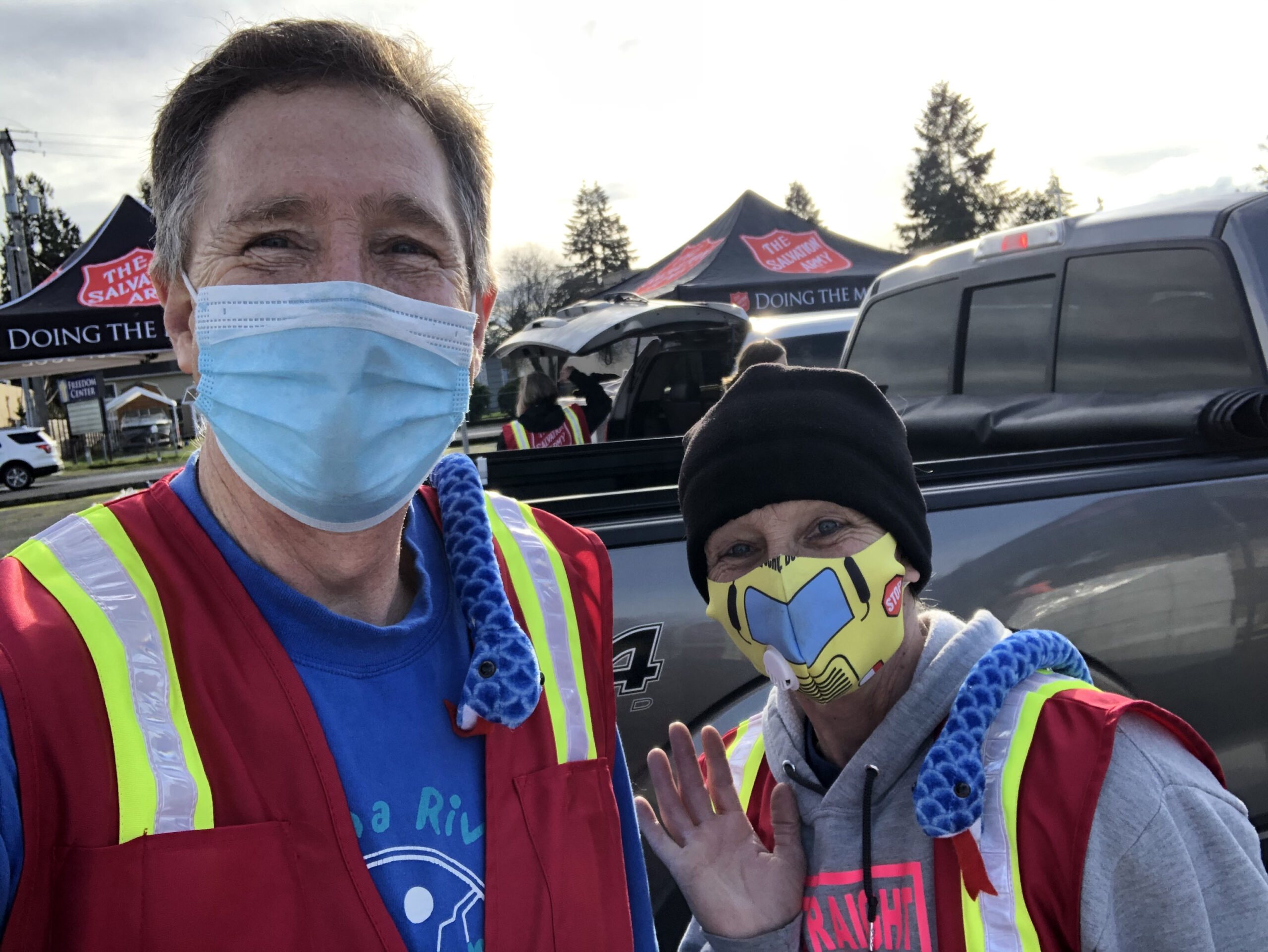
Jay Brower and a Bethel community member lend a hand during a food and basic needs drive for youth and families.
Jay Brower, Community Connections Director of Bethel School District, saw the impact school closures had on unhoused youth, “When schools shut down, the challenge was how to make sure that they were still being fed and had some sort of housing. Many are unaccompanied youth who are couch surfing, and once COVID-19 started, families were less likely to take in others.
“A lot of the support they got was from the schools, meals, a warm nice place during the day, afterschool tutoring and support. When schools shut down, if they didn’t have appropriate transportation or means to get to the schools for basic nutrition, they were struggling and it’s pretty tough.”
District partnerships with nonprofit organizations provide essential, but limited, support for needs the school doesn’t usually meet. Under COVID-19 conditions, school staff are not only collaborating with nonprofits, they are also taking on extra responsibilities to try and fill the gap in resources for students and families. Meanwhile, with schools closed, youth and families are turning to nonprofits for needs the school used to cover.
“We really wanted to ensure that we were surfacing different experiences that students and families were having in more rural districts.”
Eatonville Family Agency partners with the Eatonville School District, offering basic needs services like providing shelter, food access, emotional and mental health, and child safety supports. Executive Director Alana Smith elaborates on the impact of closing schools, “Families that relied on schools for two meals per day for some if not all of the children in their household are being hit hard. Even programs that provided supplemental nutrition support could not account for added transportation costs for rural families, rather than having transportation and meals provided by the schools. The structures provided by school districts was a huge loss to families in that respect.”
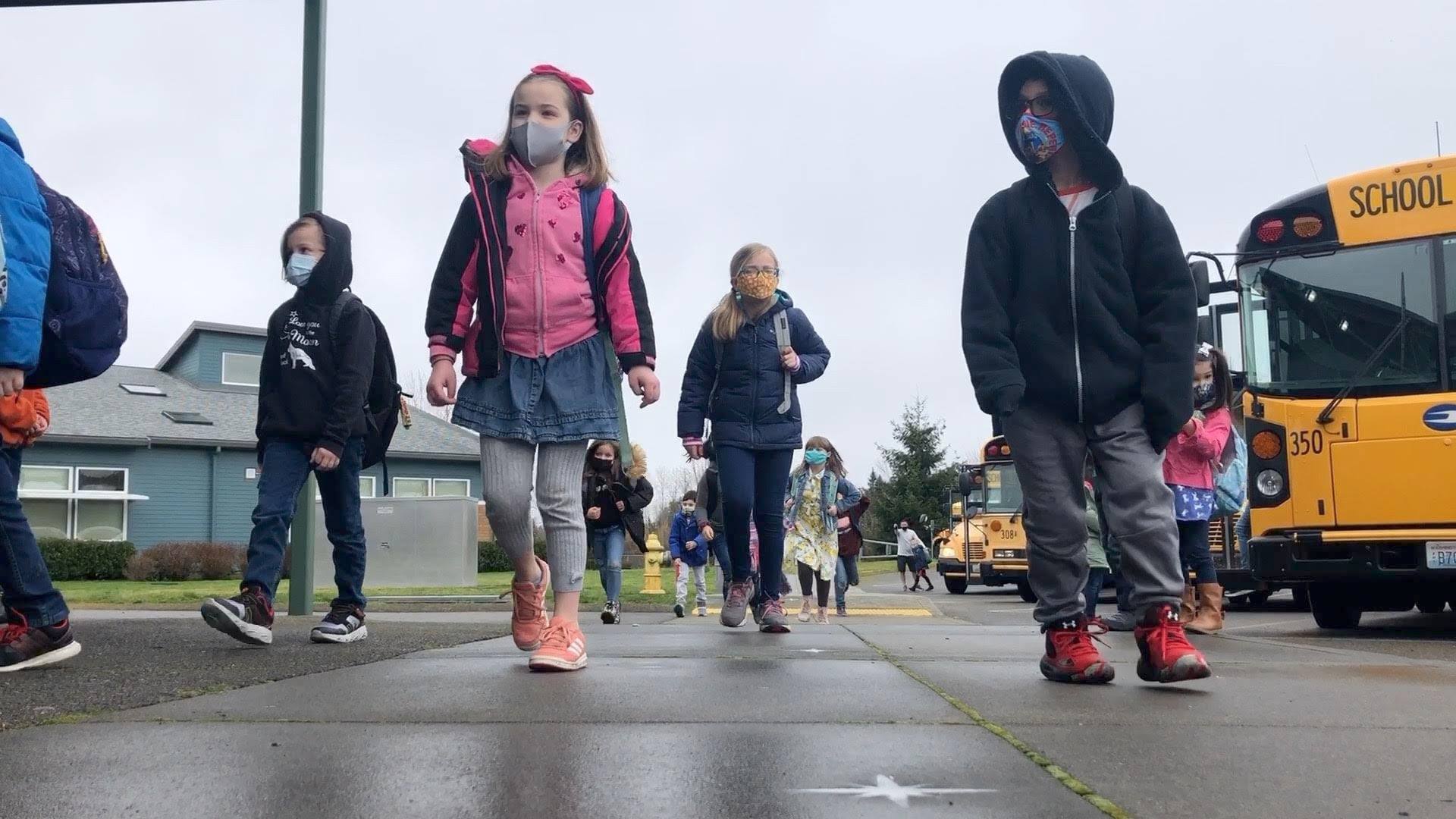
Potentially, 1 in 3 kids in rural communities are living in a home where there is significant financial need, even without the presence of COVID-19.
As the demand for basic needs increases, Alana sees how students also struggle with technology access in rural Pierce County with remote learning, “Access to devices and internet is and has been a huge challenge in supporting our students and families, especially for those experiencing homelessness. In addition to people living in tents with no power, we have students that are living ‘doubled-up’ in a home. So, while it appears that they have internet and all the structures they need for online school, 6 or 7 students are trying to get online at the same time and the bandwidth can’t support it.”
PIERCE COUNTY CONNECTED funding recipients Bethel School District Foundation, Bethel Community Services, Eatonville Family Agency, and Sumner-Bonney Lake School District represent a portion of the vast need for student and family supports seen across Pierce County. Holly Bamford Hunt, PCC Funding Committee Member, Executive Director and CEO of Bamford Foundation, “Through continued convenings we were able to recognize that there were urgent needs such as food security and housing. As we were aware of this, we were discovering that school districts made immediate efforts to provide food security support and other forms of outreach to students and families. We really wanted to ensure that we were surfacing different experiences that students and families were having in more rural districts. We realized the only way we could this was to reach out directly to the school districts and to community partners who are working regularly with school districts.”
“How can we together as a community come up with better strategies for our families? How can we become more open to providing innovative solutions in our community? It takes everyone.”
PIERCE COUNTY CONNECTED funding supported nonprofit partners working in the Bethel, White River, Sumner-Bonney Lake, Key Peninsula, Eatonville, and Tacoma school districts. However, the scale of need that school districts are trying to meet under the McKinney-Vento Homeless Education Assistance Act exceeds the capacity of districts, nonprofits, and philanthropy.
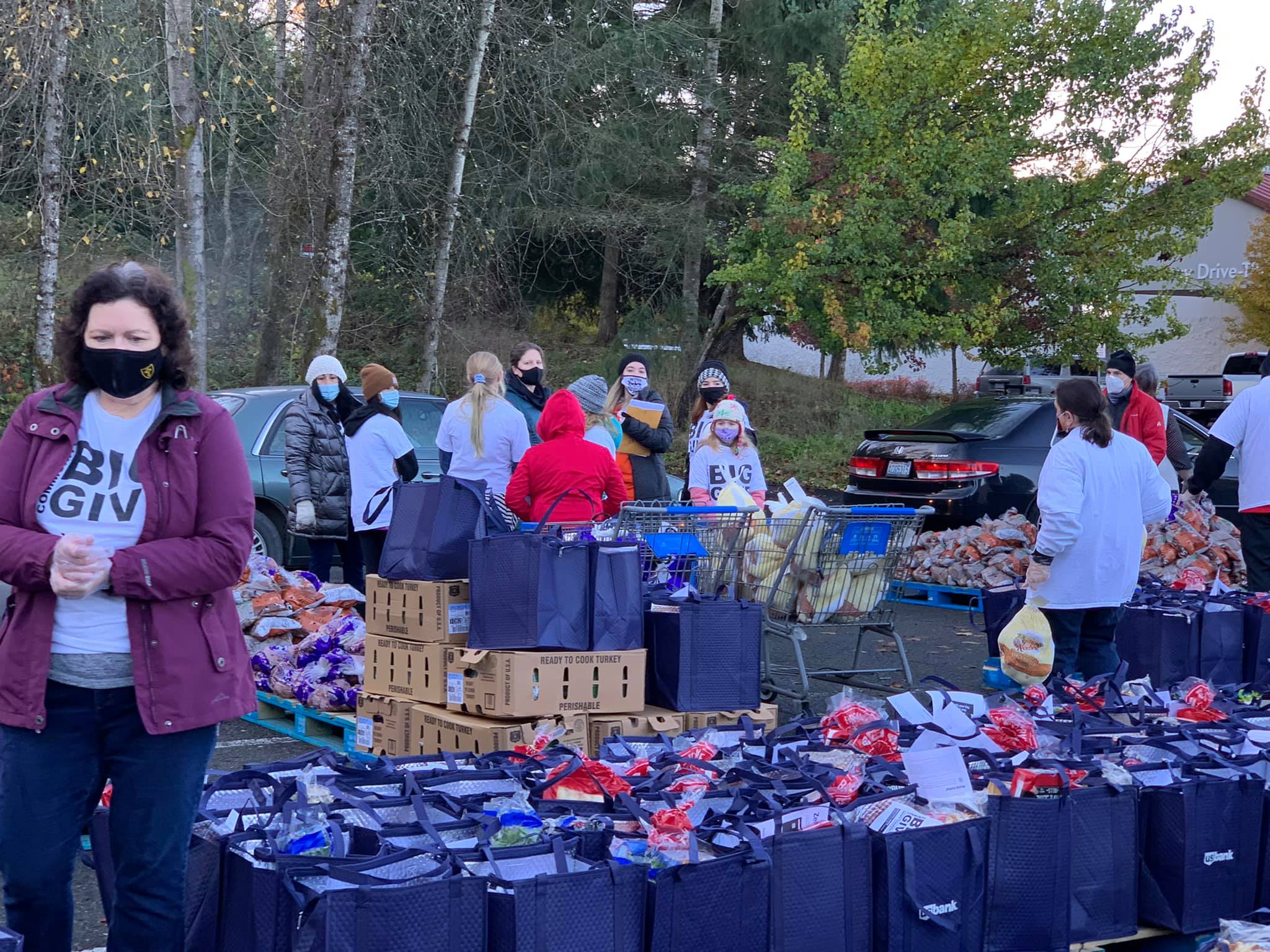
Food drive events in rural communities like Bonney Lake, have supported youth and families during the course of COVID-19.
Seth Kirby, Vice President of Community Impact at Greater Tacoma Community Foundation, explains the importance of partnerships when tackling such complex needs, “Unfortunately, our youth and young adult homelessness supports and systems were inadequate prior to COVID-19 and are further under-resourced now.
“While philanthropy can be a catalyst and support gaps, one of our most valuable tools is that of listening, especially to youth and family experts with lived experience and providers responding directly to these needs. Now is the time for us to come together, across sector, so we can start to ask one another different questions, address longstanding inequities, and build new kinds of partnerships and relationships. In the end, this is about ensuring that all Pierce County youth and families can thrive.”
In Sumner-Bonney Lake, Marilee Hill-Anderson shares the reality of the pandemic’s lasting effects on unstable systems, “Without funding we would not be able to provide case management to families who are struggling with homelessness and basic needs. We would not be able to help them navigate the myriad of system resources.
“I need people to know how many families are coming to us for rental and utility assistance as well as shelter. Think about how limited our resources are without partnerships and supports from our community. We have children that need stable places to live. How can we together as a community come up with better strategies for our families? How can we become more open to providing innovative solutions in our community? It takes everyone. The schools see it all and yet we sometimes have trouble mobilizing public agencies to look at this issue.”
Further Reading
Sumner-Bonney Lake School District – Students Experiencing Homelessness
Supports for Students Experiencing Homelessness —McKinney-Vento Homeless Assistance Act
One in ten young adults experience homelessness during one year. (November 2017, U Chicago News)
